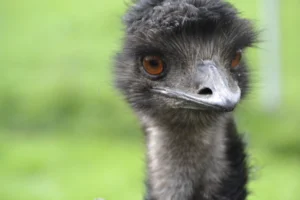

The Eurovision Song Contest is an annual competition that brings together countries from across Europe to showcase their musical talents and compete for the title of Eurovision champion. Since its inception in 1956, the contest has crowned many winners from different countries. Here, we take a look at the top Eurovision Song Contest winners by country.
Ireland (wins: 7)
Ireland is one of the most successful countries in the history of the Eurovision Song Contest, having won the competition a total of seven times. The country’s first victory came in 1970 with Dana’s “All Kinds of Everything,” and its most recent win was in 1996 with Eimear Quinn’s “The Voice.”
Here are all the winners from Ireland in the Eurovision Song Contest:
1970: Dana with “All Kinds of Everything”
1980: Johnny Logan with “What’s Another Year”
1987: Johnny Logan with “Hold Me Now”
1992: Linda Martin with “Why Me?”
1993: Niamh Kavanagh with “In Your Eyes”
1994: Paul Harrington and Charlie McGettigan with “Rock ‘n’ Roll Kids”
1996: Eimear Quinn with “The Voice”
Ireland’s success in the Eurovision Song Contest is largely due to the country’s unique and distinct style of music, which often incorporates elements of traditional Irish music and modern pop. Johnny Logan, in particular, is a legendary figure in the competition’s history, having won the competition twice as a singer and once as a songwriter.
In recent years, Ireland has struggled to replicate its past success, often failing to make it past the semi-final stages of the competition. However, the country’s rich musical heritage and strong fan base continue to make it a beloved and respected participant in the Eurovision Song Contest. Ireland’s contributions to the competition have played an important role in shaping its identity and legacy, and fans around the world eagerly anticipate each new Irish entry.
Sweden (wins: 7)
Sweden has a strong history of success in the Eurovision Song Contest, having won the competition seven times. The country’s first win in the competition was back in 1974 when the iconic pop group ABBA took home the trophy with their hit song “Waterloo.” Since then, Sweden has continued to be a major force in the Eurovision Song Contest, producing winners like Herreys, Carola, Charlotte Nilsson, Loreen, and Måns Zelmerlöw. Here are all the winners from Sweden in the Eurovision Song Contest: 1974: ABBA with “Waterloo” 1984: Herreys with “Diggi-Loo Diggi-Ley” 1991: Carola with “Fångad av en stormvind” 1999: Charlotte Nilsson with “Take Me to Your Heaven” 2012: Loreen with “Euphoria” 2015: Måns Zelmerlöw with “Heroes” 2023: Loreen with “Tattoo” Sweden’s most recent win came in 2023 with Loreen’s “Tattoo”. In 2012, Loreen’s “Euphoria” became Sweden’s most successful entry, winning the competition with a record-breaking score of 372 points. This makes Loreen the first woman to win the competition twice. She was also considered one of the top favorites before the Eurovision Song Contest 2012 and 2023. Loreen’s unique sound, powerful vocals, and artistic vision make her a truly great artist, with a dedicated fan base and a significant impact on the music industry. In addition to its seven victories, Sweden has placed in the top five a total of 26 times, proving itself to be one of the most successful and consistent countries in the history of the competition. Swedish entries are known for their catchy melodies, innovative staging, and strong vocal performances, and the country’s contributions to the Eurovision Song Contest have played a significant role in shaping the competition’s identity and legacy.
France (wins: 5)
France has had a long and successful history in the Eurovision Song Contest, having won the competition a total of five times. The country’s first victory came in 1958 with André Claveau’s “Dors, mon amour,” and its most recent win was in 1977 with Marie Myriam’s “L’oiseau et l’enfant.” Here are all the winners from France in the Eurovision Song Contest: 1958: André Claveau with “Dors, mon amour” 1960: Jacqueline Boyer with “Tom Pillibi” 1962: Isabelle Aubret with “Un premier amour” 1969: Frida Boccara with “Un jour, un enfant” 1977: Marie Myriam with “L’oiseau et l’enfant” France is known for its unique and varied musical styles, often incorporating elements of chanson, pop, and world music. The country has produced many memorable entries over the years, including “Tom Pillibi” by Jacqueline Boyer and “Un jour, un enfant” by Frida Boccara, both of which won the competition. Although France has not won the competition in many years, it has still remained a consistent and respected participant, often placing in the top ten and producing memorable performances that showcase the country’s rich musical heritage. The country’s contributions to the Eurovision Song Contest have played an important role in shaping the competition’s history and identity, and its fans around the world eagerly anticipate each new French entry.
Luxembourg (wins: 5)
Luxembourg is a small country that has made a big impact on the Eurovision Song Contest, having won the competition a total of five times. The country’s first victory came in 1961 with Jean-Claude Pascal’s “Nous les amoureux,” and its most recent win was in 1973 with Anne-Marie David’s “Tu te reconnaîtras.” Here are all the winners from Luxembourg in the Eurovision Song Contest: 1961: Jean-Claude Pascal with “Nous les amoureux” 1965: France Gall with “Poupée de cire, poupée de son” 1972: Vicky Leandros with “Après toi” 1973: Anne-Marie David with “Tu te reconnaîtras” 1983: Corinne Hermès with “Si la vie est cadeau” Luxembourg is known for its unique approach to music, often incorporating elements of chanson and pop into its entries. The country’s victories in the Eurovision Song Contest have helped to establish its reputation as a cultural and artistic center in Europe, and its fans around the world eagerly anticipate each new Luxembourgish entry. Although Luxembourg has not participated in the competition since 1993, its contributions to the Eurovision Song Contest have played an important role in shaping its identity and legacy. The country’s wins and memorable performances have left a lasting impression on fans of the competition, and continue to inspire new generations of musicians and performers. Luxembourg will finally make a comeback to the Eurovision Song Contest in 2024, after being absent from the competition since 1993.
Netherlands (wins: 5)
The Netherlands is a country with a rich musical heritage, and has won the Eurovision Song Contest a total of five times. The country’s first victory came in 1957 with Corry Brokken’s “Net als toen,” and its most recent win was in 2019 with Duncan Laurence’s “Arcade.” Here are all the winners from the Netherlands in the Eurovision Song Contest: 1957: Corry Brokken with “Net als toen” 1959: Teddy Scholten with “Een beetje” 1969: Lenny Kuhr, Lenny Kuhr, Les Poppys, Salomé, Frida Boccara with “De troubadour” 1975: Teach-In with “Ding-a-dong” 2019: Duncan Laurence with “Arcade” The Netherlands is known for its diverse and innovative music scene, and its contributions to the Eurovision Song Contest have been instrumental in shaping the competition’s history and identity. The country’s entries have often incorporated elements of folk, rock, and electronic music, and have been praised for their artistic and experimental qualities. Duncan Laurence’s win in 2019 with “Arcade” was a particularly historic moment for the Netherlands, as it marked the country’s first victory in the Eurovision Song Contest in over four decades. The song, which was co-written by Laurence, was praised for its emotional depth and haunting melody, and cemented Laurence’s status as a rising star in the European music scene. The Netherlands’ success in the Eurovision Song Contest has helped to establish the country as a cultural and artistic center in Europe, and its fans around the world eagerly anticipate each new Dutch entry.
United Kingdom (wins: 5)
The United Kingdom is one of the most successful countries in the history of the Eurovision Song Contest, having won the competition a total of five times. The country’s first victory came in 1967 with Sandie Shaw’s “Puppet on a String,” and its most recent win was in 1997 with Katrina and the Waves’ “Love Shine a Light.” Here are all the winners from the United Kingdom in the Eurovision Song Contest: 1967: Sandie Shaw with “Puppet on a String” 1969: Lulu with “Boom Bang-a-Bang” (tied with three other countries) 1976: Brotherhood of Man with “Save Your Kisses for Me” 1981: Bucks Fizz with “Making Your Mind Up” 1997: Katrina and the Waves with “Love Shine a Light” The United Kingdom is known for its rich musical heritage, and its contributions to the Eurovision Song Contest have been instrumental in shaping the competition’s history and identity. The country’s entries have often incorporated elements of pop, rock, and electronic music, and have been praised for their catchy melodies and memorable performances. Despite its success in the competition, the United Kingdom has struggled in recent years to secure a victory in the Eurovision Song Contest. However, its fans around the world remain optimistic and eager to see what new entries the country will bring to the competition in the years to come.
Israel (wins: 4)
Israel is one of the most successful countries in the Eurovision Song Contest, having won the competition a total of four times. The country’s first victory came in 1978 with Izhar Cohen and the Alphabeta’s “A-Ba-Ni-Bi,” and its most recent win was in 2018 with Netta’s “Toy.” Here are all the winners from Israel in the Eurovision Song Contest: 1978: Izhar Cohen and the Alphabeta with “A-Ba-Ni-Bi” 1979: Gali Atari and Milk and Honey with “Hallelujah” 1998: Dana International with “Diva” 2018: Netta with “Toy” Israel is known for its diverse and vibrant music scene, and its contributions to the Eurovision Song Contest have been instrumental in shaping the competition’s history and identity. The country’s entries have often incorporated elements of traditional Jewish and Middle Eastern music, as well as modern pop and dance genres. Dana International’s win in 1998 with “Diva” was a particularly historic moment for Israel, as she became the first transgender person to win the Eurovision Song Contest. Her victory was a major milestone for the LGBTQ+ community and helped to raise awareness about issues of gender identity and expression. Netta’s win in 2018 with “Toy” was another landmark moment for Israel, as it marked the country’s fourth victory in the Eurovision Song Contest and solidified Israel’s status as a major player in the competition. The song, which was inspired by the #MeToo movement, was praised for its empowering message and infectious beat. Israel’s success in the Eurovision Song Contest has helped to establish the country as a cultural and artistic center in the Middle East and beyond, and its fans around the world eagerly anticipate each new Israeli entry.
Denmark (wins: 3)
Denmark has a long and storied history in the Eurovision Song Contest, having won the competition a total of three times. The country’s first victory came in 1963 with Grethe and Jørgen Ingmann’s “Dansevise,” and its most recent win was in 2013 with Emmelie de Forest’s “Only Teardrops.” Here are all the winners from Denmark in the Eurovision Song Contest: 1963: Grethe and Jørgen Ingmann with “Dansevise” 2000: Olsen Brothers with “Fly on the Wings of Love” 2013: Emmelie de Forest with “Only Teardrops” Denmark is known for its rich musical heritage, and its contributions to the Eurovision Song Contest have been instrumental in shaping the competition’s history and identity. The country’s entries have often incorporated elements of pop, rock, and electronic music, and have been praised for their catchy melodies and memorable performances. The Olsen Brothers’ win in 2000 with “Fly on the Wings of Love” was a particularly memorable moment for Denmark, as the song became a major hit throughout Europe and beyond. The song’s upbeat tempo and catchy chorus helped to establish the Olsen Brothers as international stars, and their victory in the Eurovision Song Contest cemented their place in music history. Emmelie de Forest’s win in 2013 with “Only Teardrops” was another landmark moment for Denmark, as it marked the country’s third victory in the Eurovision Song Contest and solidified Denmark’s status as a major player in the competition. The song, which incorporated elements of folk music and featured de Forest’s haunting vocals, was praised for its emotional depth and beauty. Denmark’s success in the Eurovision Song Contest has helped to establish the country as a cultural and artistic hub in Scandinavia and beyond, and its fans around the world eagerly anticipate each new Danish entry.
Italy (wins: 3)
Italy has a rich and storied history in the Eurovision Song Contest, with its unique blend of traditional Italian melodies and contemporary pop sensibilities capturing the hearts of fans around the world. The country has won the competition three times, with its most recent victory coming in 2021 with the rock band Måneskin and their song “Zitti e buoni.” Here are all the winners from Italy in the Eurovision Song Contest: 1964: Gigliola Cinquetti with “Non ho l’età” 1990: Toto Cutugno with “Insieme: 1992” 2021: Måneskin with “Zitti e buoni” Gigliola Cinquetti’s win in 1964 with “Non ho l’età” marked Italy’s first victory in the Eurovision Song Contest. The song’s catchy chorus and bouncy rhythm made it an instant classic, and Cinquetti’s win paved the way for other Italian artists to achieve success in the competition. Toto Cutugno’s win in 1990 with “Insieme: 1992” was another landmark moment for Italy. The song’s soaring chorus and uplifting lyrics made it an instant hit throughout Europe and beyond, and helped to establish Cutugno as one of Italy’s most beloved musicians. Italy’s most recent victory in the Eurovision Song Contest came in 2021 with Måneskin’s “Zitti e buoni.” The band’s energetic rock performance and catchy chorus resonated with both the audience and the international juries, earning them a total of 524 points and securing their place in Eurovision history. Overall, Italy’s contributions to the Eurovision Song Contest have helped to shape the competition into the global phenomenon it is today, and its unique musical style and rich cultural heritage continue to inspire fans around the world.
Norway (wins: 3)
Norway has a rich tradition of producing some of the most memorable and innovative entries in the Eurovision Song Contest. The country has won the competition three times, first in 1985 with Bobbysocks’ “La det swinge”, then in 1995 with Secret Garden’s “Nocturne”, and most recently in 2009 with Alexander Rybak’s “Fairytale”. Here are all the winners from Norway in the Eurovision Song Contest: 1985: Bobbysocks with “La det swinge” 1995: Secret Garden with “Nocturne” 2009: Alexander Rybak with “Fairytale” Norway’s victories in the Eurovision Song Contest have showcased the country’s diverse musical landscape, from pop to classical to folk. Bobbysocks’ win in 1985 with “La det swinge” was a major moment for Norway, as it marked the country’s first victory in the Eurovision Song Contest. The song’s catchy melody and playful lyrics helped to establish Bobbysocks as national icons, and their win paved the way for other Norwegian artists to achieve success in the competition. Secret Garden’s win in 1995 with “Nocturne” was a major departure from the pop-oriented songs that typically win the Eurovision Song Contest. The song featured a hauntingly beautiful instrumental melody, and its ethereal sound helped to establish Secret Garden as one of Norway’s most celebrated musical exports. Alexander Rybak’s win in 2009 with “Fairytale” was another landmark moment for Norway, as the song became an instant classic throughout Europe and beyond. The song’s catchy melody and Rybak’s charismatic performance helped to establish him as one of Norway’s most beloved musicians, and his victory in the Eurovision Song Contest solidified his place in music history. Norway’s contributions to the Eurovision Song Contest have helped to establish the country as a major force in the world of music, and its fans around the world eagerly anticipate each new Norwegian entry. Whether showcasing the country’s diverse musical landscape or exploring new musical horizons, Norway’s entries in the competition continue to captivate audiences and earn critical acclaim.
Ukraine (wins: 3)
Since making its debut in the Eurovision Song Contest in 2003, Ukraine has established itself as a major contender in the competition, having won it thrice. The country has won the Eurovision Song Contest three times: in 2004 with Ruslana’s “Wild Dances”, in 2016 with Jamala’s “1944”, and in 2022 with Kalush Orchestra’s “Stefania”. Here are all the winners from Ukraine in the Eurovision Song Contest: 2004: Ruslana with “Wild Dances” 2016: Jamala with “1944” 2022: Kalush Orchestra with “Stefania” Ruslana’s win in 2004 with “Wild Dances” was a groundbreaking moment for Ukraine, as it marked the country’s first-ever win in the Eurovision Song Contest. The song’s fusion of traditional Ukrainian music and modern pop elements helped to establish Ruslana as a major musical icon in Ukraine and beyond, and the song’s energetic performance and memorable chorus made it a favorite with Eurovision fans. In 2016, Jamala’s win with “1944” was another significant moment for Ukraine, as the song explored the tragedy and hardship suffered by her Crimean Tatar ancestors during World War II. The song’s haunting melody, heartfelt lyrics, and Jamala’s emotive performance struck a chord with audiences, and the win was celebrated throughout Ukraine and the wider Eurovision community. Kalush Orchestra’s “Stefania” from 2022 is a powerful song that pays tribute to the narrator’s mother, with lyrics reflecting on good memories and the hardships she faced. The song features traditional Ukrainian woodwind instruments and includes a lullaby at the end of each rap verse. Dedicated to frontman Oleh Psiuk’s mother, also named Stefania, the song gained added significance as a popular wartime soundtrack on social media following Russia’s invasion of Ukraine in 2022. Ukraine’s contributions to the Eurovision Song Contest have helped to showcase the country’s rich musical heritage, as well as its ability to innovate and push boundaries in the world of music. Whether exploring traditional sounds or pushing the envelope with bold new ideas, Ukraine’s entries in the competition continue to captivate audiences and earn critical acclaim.
Source: Eurovision






